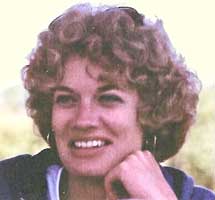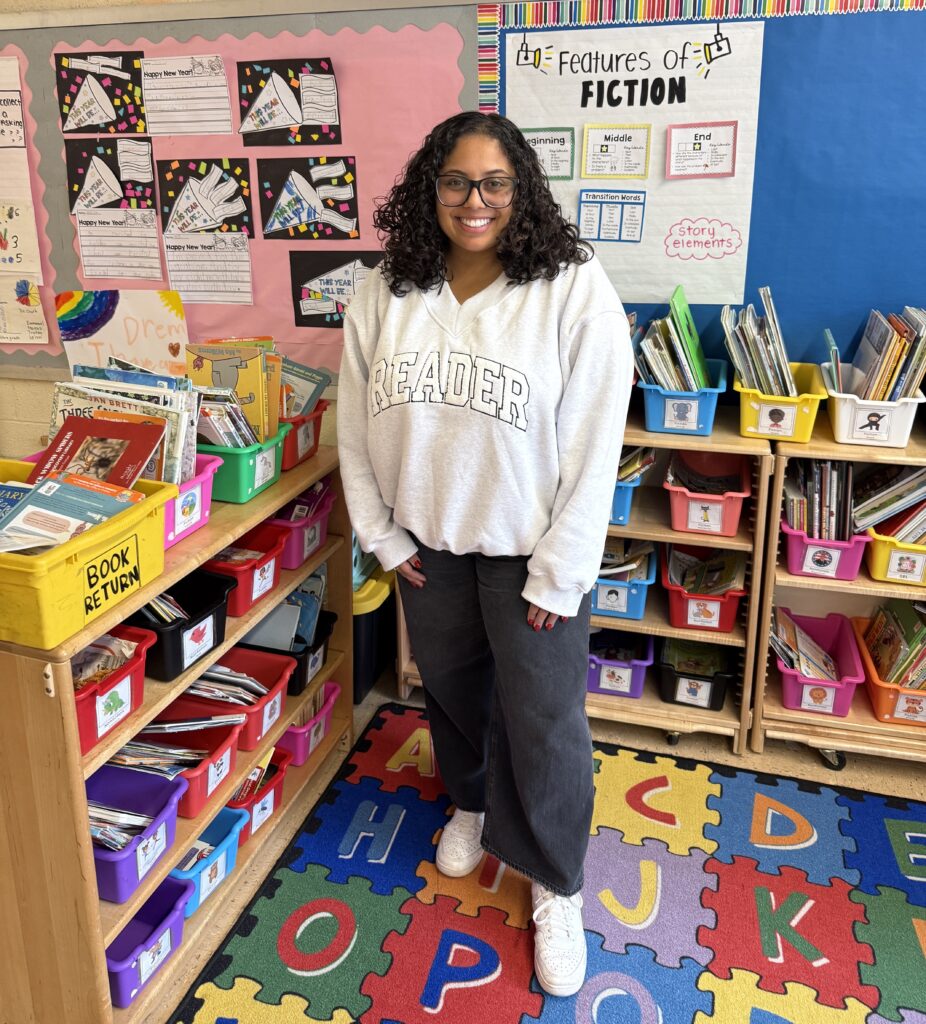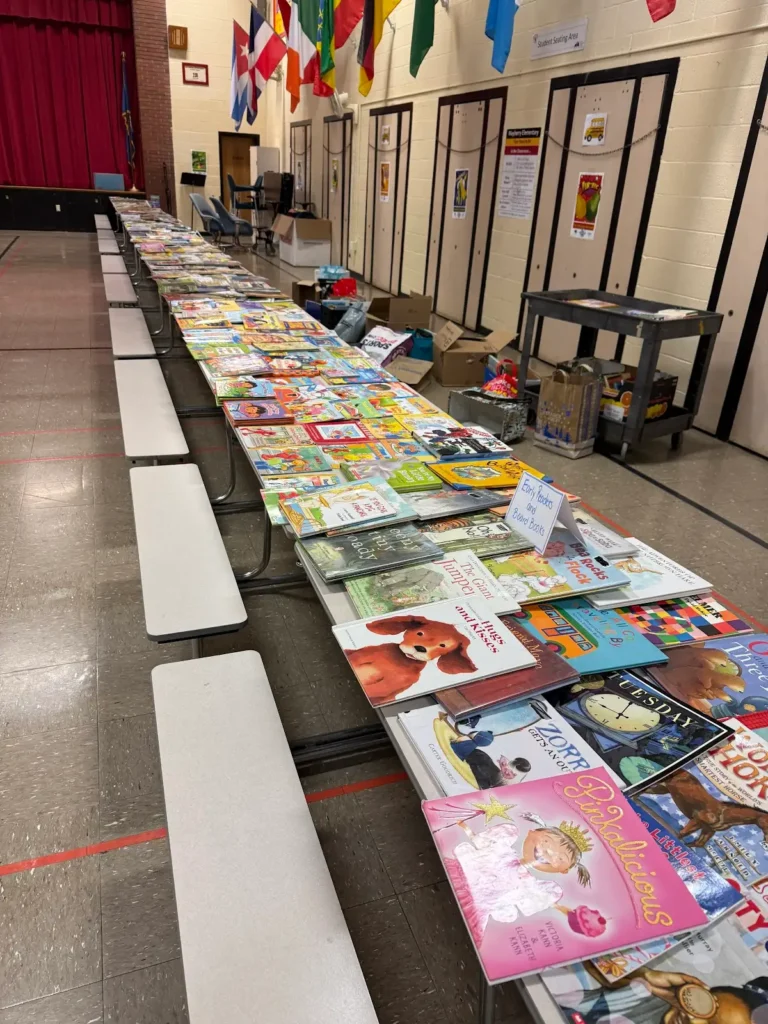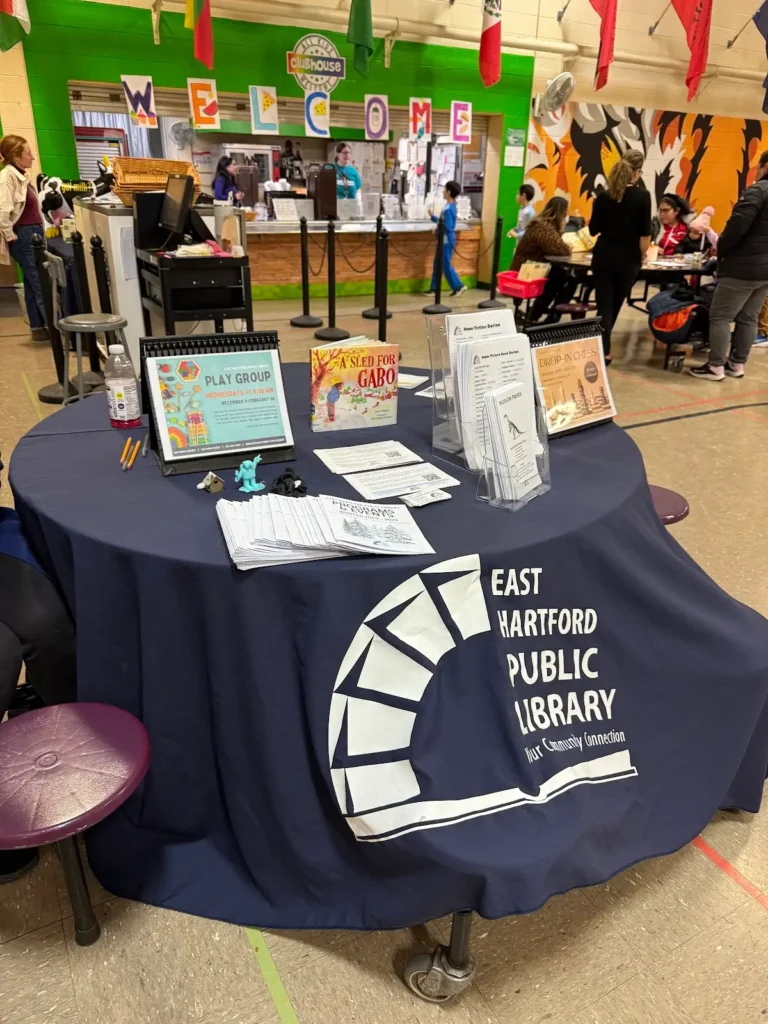Sacha Kelly has combined her career as a mathematics teacher and her avocation as an artist to have an impact on countless young lives.
We honored her with a scholarship and welcomed her into our scholarship family in 2009, and recently she received another well-deserved recognition.
The Capitol Region Education Council (CREC) named her a “Hidden Gem” for all she has done for her students at the Academy of Science and Innovation in New Britain, where she is a mathematics teacher.
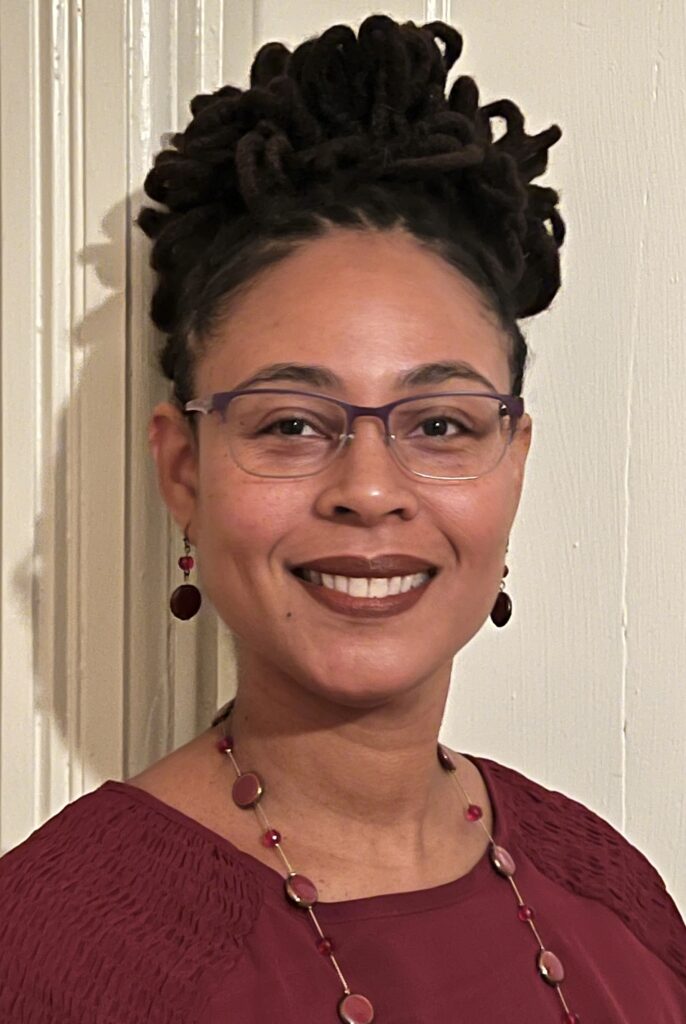
Mrs. Kelly was born in Trinidad, came to the U.S. as a child with her family and settled in New York City, where she graduated from the prestigious Stuyvesant High School.
She earned bachelor’s and master’s degrees from Trinity College and the University of Saint Joseph, respectively, and has continued to learn and grow as she has built her career.
She won a Joule Fellowship at UConn, in which she did cutting-edge research intended to enrich her teaching. Along the way, she obtained administrator certification at Central Connecticut State University.
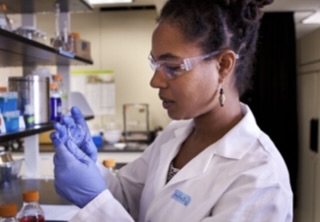
Sacha Kelly in the laboratory at UConn.
Positive Impact on Youths
In a video interview with Yanique Grant-Buchanan of CREC, who presented the Hidden Gem award, Mrs. Kelly said she was proud of having a role in improving the lives of her students, many of whom remain in touch with her after graduation.
“That’s what brings me joy,” she said, “to know that I have had an impact on so many youths over the years.”
Social Justice and Math
Mrs. Kelly emphasizes incorporating concepts of social justice into her teaching of mathematics. She is the author of a “Mural Mathematics” chapter in a book titled Connecting Mathematics and Social Justice: A Guide for Educators. The book was written by the Mathematics Teachers Circle for Social Justice, in which she was a member of the inaugural 2021 Summer Stars cohort of mathematics teachers.
“The chapter is intended to help other teachers to see how they can incorporate social justice into the math curriculum,” she said. “Whether they are teaching algebra or geometry, the curriculum can reflect the lives of their students more effectively if they take the time to make math more multicultural and diverse. It will have a lasting impact on their students if math is being taught in a way that’s more meaningful.
“Teachers should be reaching students where they are,” she said, “so they will see themselves in math. I hope (the book) will improve the teaching of math throughout the state.”
Sharing Her Love of Art
She has also found ways to share her love of art with students at her school. Three times during the year, she and her students create murals at school in celebration of Black History, Hispanic Heritage, and Caribbean Heritage.
“These are major productions put on with the involvement of students and other teachers,” she said.
Beyond teaching math, Mrs. Kelly coaches the school’s cheerleading team.

Bloomfield street mural
Art Projects in the Community
She also has led community collaborations in creating Black Lives Matter murals on Trinity Street at Bushnell Park in Hartford and on a street near Town Hall in Bloomfield. She engaged students in creating “Say Their Names” street murals at schools in Bloomfield and an “End Racism Now” mural in Windsor.
“These murals were community collaborations representing diverse perspectives,” she said.
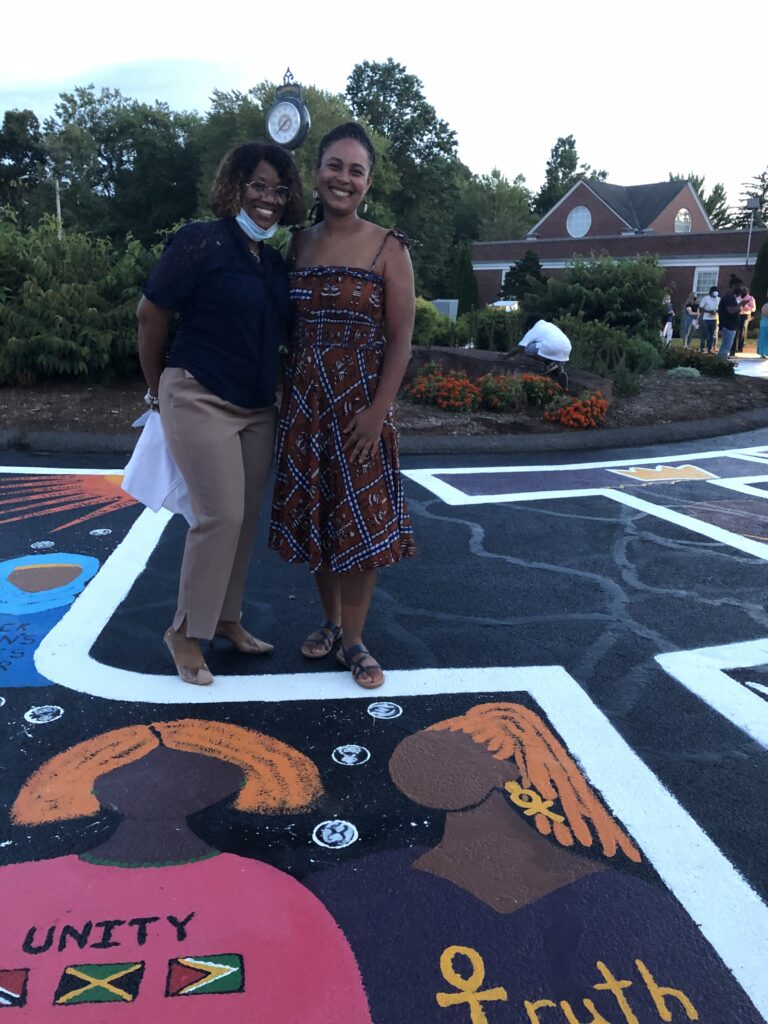
Sacha Kelly, right, with Suzette DeBeatham-Brown, former
mayor of Bloomfield at street mural near Bloomfield Town Hall.
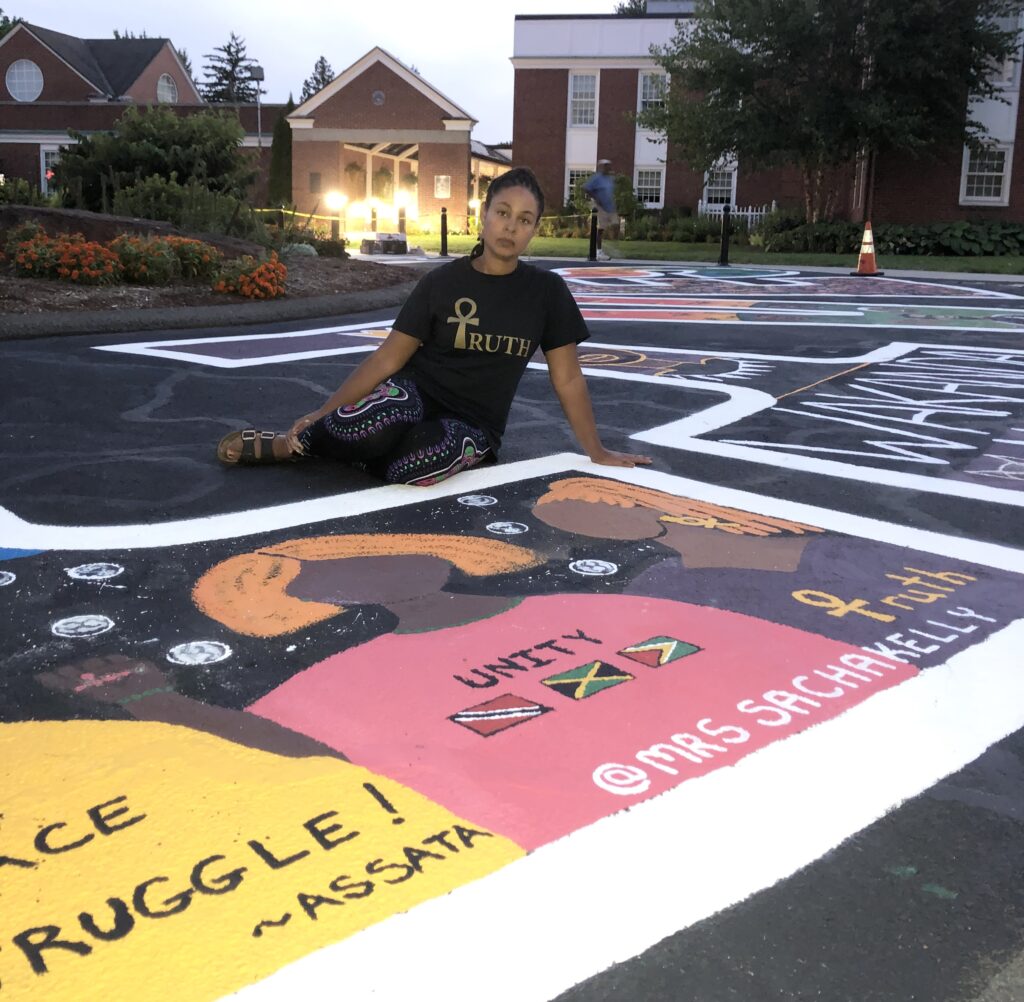
Sacha Kelly with Black Lives Matter street mural.
Shout Out to Alma Exley Scholars
Mrs. Kelly gave a shout out in the interview to her CREC colleagues who also have been honored by the Alma Exley Scholarship Program. They are Desi Nesmith, assistant executive director, and Dr. Violet Jiménez Sims, who manages CREC’s Teacher Residency Program.
“The network of Alma Exley Scholars has grown into an impressive cohort of educators whom I draw inspiration from,” she said. “The network even includes Dr. Miguel Cardona (former U.S. secretary of education). I’m so happy to be a part of this group of educators.”
Mrs. Kelly concluded the interview with a paraphrase of a quotation from author Maya Angelou: “Your students may not remember every specific thing you taught them, but they will remember how you made them feel.” And she added, “I will continue to work in the CREC community to make sure our students feel as wonderful and beautiful and capable as they really are.”
-0-
